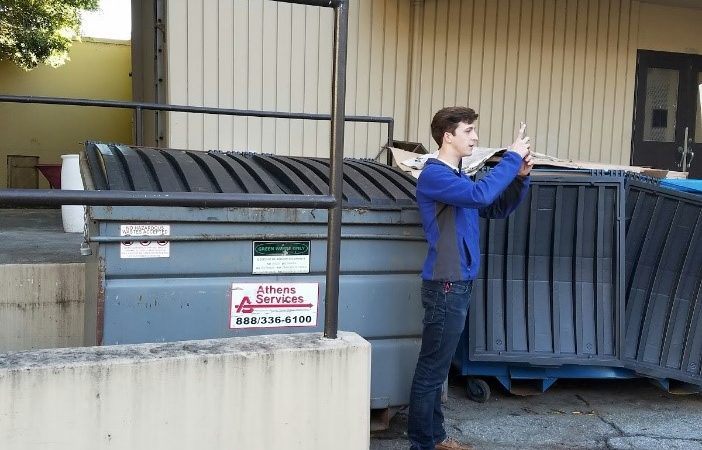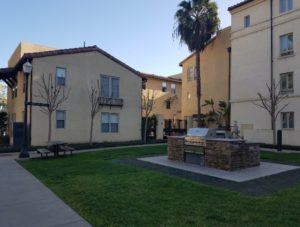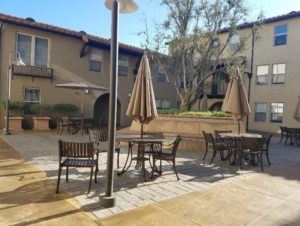
By Sarah Paset
Just as our team thought our project was well on its way to being a huge success, we found ourselves hitting roadblock after roadblock. As our beloved John Wooden once said, “Failure is not fatal, but failure to change might be.” It is with this attitude that we are reevaluating our plans and adjusting our course of action.
At our last team meeting, we looked at which steps are needed for us to reach our goals. First (and possibly most importantly) in our mission to establish composting in Weyburn Apartments, we need to establish a working relationship with the waste management company Athens. In addition to our current work with Emma Sorrell, the Sustainability Manager of housing and Hospitality Services, we are hopeful that Athens will also be able to provide suggestions to advance our composting system further. We are also in the process of planning a team trip to tour Athens’ Sun Valley Material Recovery Facility so that we can see firsthand where the collected compost will go and gain a better understanding of how the composting process works.
One of our current challenges in introducing a compost system and improving waste management in the graduate housing community involves the placement of waste and donation receptacles. We inspected the Weyburn apartments for potential locations for recycling and compost bins as well as places where we can improve signage. In doing so, we identified many promising open spaces that we could use. However, we have been unable to secure the fire safety codes to determine which of these open spaces are actually acceptable and which are problematic.
Our tour of the grounds also increased our awareness of just how many areas (e.g. an outdoor barbecue area) completely lack any waste bins. After researching as to why so many trash and recycling bins were “missing,” we learned that current policy restricts the placement of these waste receptacles in many of these outdoor areas due to the theory that students will not bring trash into areas without waste receptacles and thus reduce unsightly waste and/or litter. While the team disagrees with this logic, the policy greatly inhibits our plans to provide proper and accessible waste receptacles. Although much of our progress this week has been figuring out which strategies do not work, we are also narrowing down our objectives and discovering what will be most effective and where we need to make the greatest change.


